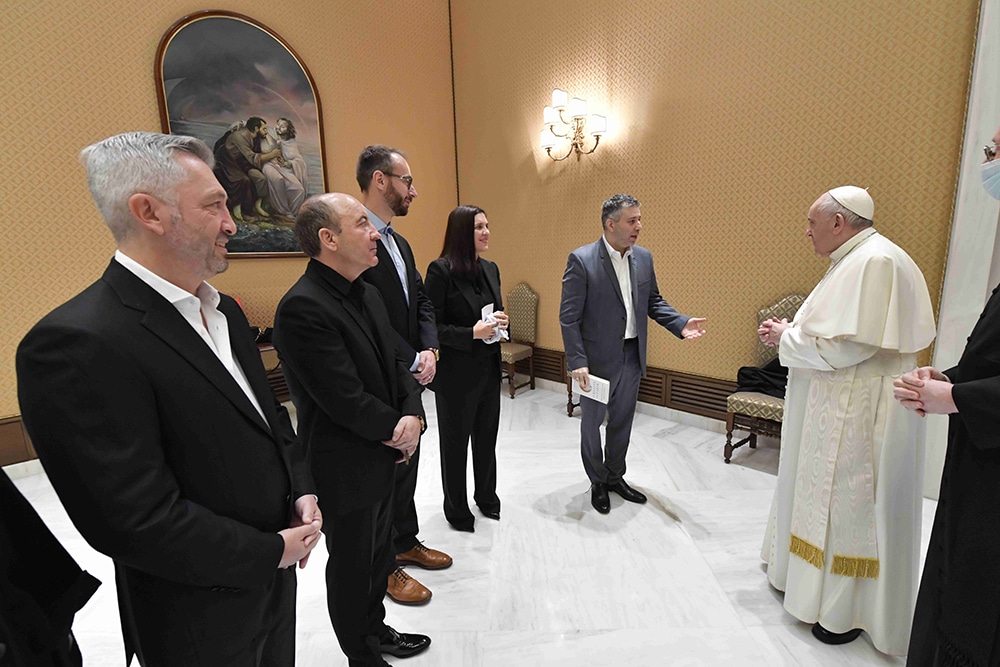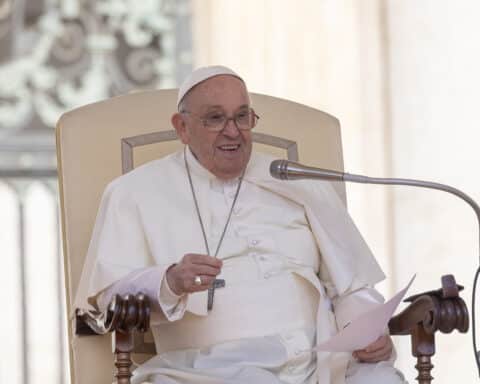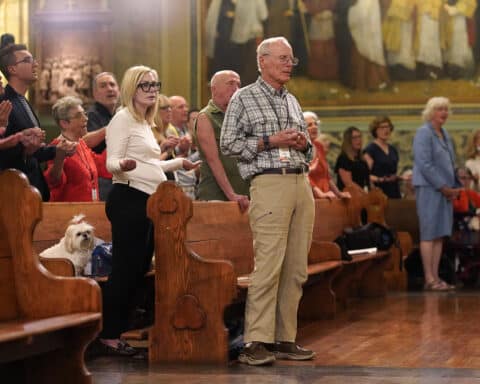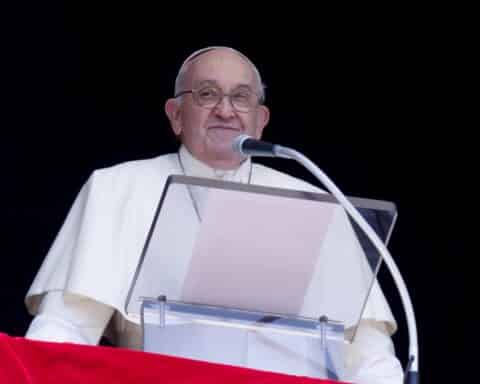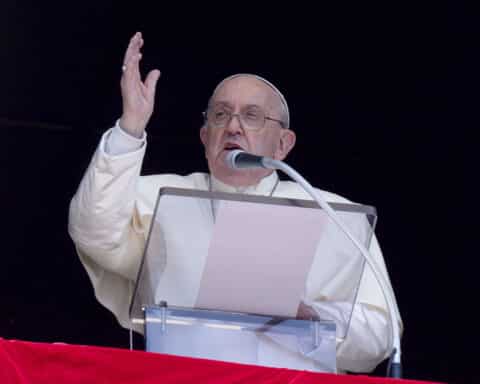While teaching a class on Zoom on the morning of Oct. 21, my email and phone began to explode. As it turned out, the documentary “Francesco” about Pope Francis had premiered, and there was wide reporting that in it the pope had endorsed civil unions for same-sex couples. A religion reporter for a national newspaper called Catholic University wanting a comment and demanding to know when we were going to start offering benefits to same-sex couples. When told (twice) that we weren’t going to change any policy because there had been no change in teaching, the reporter had no further interest in speaking to anyone at our university. As our university’s communications director put it, “We didn’t fit the narrative.”
The media at large has neither the ability to contextualize this nor the desire to convey what actually happened. Headlines around the world trumpeted wildly exaggerated descriptions of the pope’s “support,” “endorsement” or “blessing” of these couples.
Fortunately, further investigation and reporting, especially by Catholic journalists, has turned up important details that create needed context to begin to understand what has happened. The film’s director, Evgeny Afineevsky, is himself a public advocate for the rights of people who identify as LGBTQ. Despite his public claims to the contrary, some of the remarks in the film were not from statements that the pope made to him but rather were from an interview with Mexican journalist Valentina Alazraki in 2019. It is not clear where Afineevsky obtained the footage from the older interview, though there is some speculation that it may have come from an unknown source in the Vatican. Further, the statements in the film were spliced together without much of the immediate context from which they came.
Paying attention to the original context of the statements in the 2019 interview makes it clear that the pope’s remarks about same-sex attracted people having “a right to be in a family” refer to not being ostracized or excommunicated from their family of origin — a point he has emphasized throughout his papacy. Throughout his pontificate he has also rejected calling unions between two people of the same sex “marriage” and argued for the right of children to have both a mother and a father. He did, however, entertain support for something like civil unions as a kind of lesser evil as archbishop of Buenos Aires. This may be the context for the film’s reference to civil unions (convivencia civil) and his phrase, “I stood up for that,” for which no one so far has been able to locate a context.
In addition to recreating context for the remarks that are significantly absent from the highly edited words that appear in the documentary, some context regarding the genre and weight of the remarks are in order. When theologians evaluate papal teaching, one of the questions they ask concerns the authority of what is proposed. Different kinds of documents that a pope may write are typically accorded different solemnity. For example, an encyclical letter generally has greater weight than a letter to a specific group of people. Then there are various kinds of addresses — audiences, Angelus messages, etc. — that are usually less formal and authoritative. But all of these are acts of teaching on the part of a pope. Informal conversations — whether on a plane with reporters or in an interview setting — are not acts of teaching. They give insight into the mind of the pope on specific matters but do not carry the weight of his teaching office.
When Pope Francis has taught formally on this matter, he clearly affirms the view articulated at the 2015 synod on the family: “The Synod Fathers observed that, ‘as for proposals to place unions between homosexual persons on the same level as marriage, there are absolutely no grounds for considering homosexual unions to be in any way similar or even remotely analogous to God’s plan for marriage and family'” (Amoris Laetitia, No. 251). This in turn echoes the teaching found in the Catechism of the Catholic Church (cf. No. 2357). It also coheres with what Pope Francis has taught publicly on the subject throughout his ministry.
If we can take the pope’s words as they appear in the documentary at face value — and, as noted above, there is more than a little reason not to — there is tension between the apparent support for civil unions that he expresses in the interview and the 2003 document from the Congregation for the Doctrine of the Faith. Written by then-Cardinal Joseph Ratzinger and approved by Pope John Paul II, the document, “Considerations Concerning Proposals to Give Legal Recognition to Unions between Homosexual Persons,” opposed such unions and argued that Catholic politicians should not support them.
However, two further qualifications must be noted. First, the CDF statement was itself a prudential judgment applying principles of Catholic moral teaching to a specific contingent historical circumstance. It does not have doctrinal — let alone dogmatic — weight. Second, that document itself envisaged a scenario in which, while not supporting the passage of such legislation, a Catholic politician might work with such a measure once passed as a way to secure legal protections for the basic human rights of people with same-sex attraction as long it did not “confer equivalent family status” on such unions. Pope Francis, it seems, may have a different prudential judgment on the matter as a way to offer legal protection for the rights of people with same-sex attraction, but he has not publicly taught as much.
To assume that there is a doctrinal conflict of some kind here is fundamentally mistaken. There is no doctrinal conflict because there is no doctrine proposed by Pope Francis in the documentary or by the CDF in the 2003 document. Doctrine, by definition, is at a level deeper than prudential judgment. Catholic teaching on marriage, sexuality and the call to live chastity in continence for unmarried people is unchanged and has been consistently reaffirmed by Pope Francis.
Pope Francis clearly wants to reach out to people who are on the margins of the Church or society, including people with same-sex attractions. Such persons deserve “respect, compassion, and sensitivity” and to have their basic human rights safeguarded (CCC No. 2358). In the Church, they deserve love, pastoral accompaniment and to be called to lives of holiness along with their opposite-sex attracted brothers and sisters. Pope Francis has said nothing to the contrary.
John S. Grabowski is an associate professor of moral theology ethics at The Catholic University of America.

